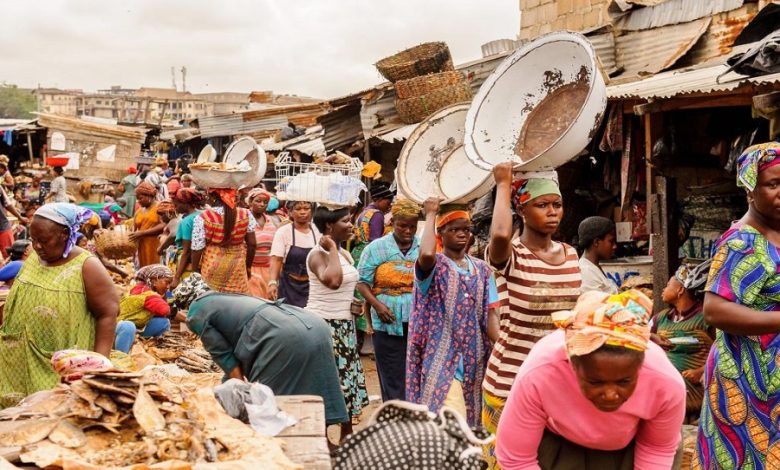
Rising inflation coupled with stagnant incomes has plunged many Nigerian households, especially those in the low-income bracket, into severe financial distress, making it increasingly challenging to afford daily necessities.
Recent data from the National Bureau of Statistics (NBS) revealed alarming figures: Nigerians spent a staggering N61.08 trillion on food and household items in the first half of 2023.
The Nigeria Development Update (NDU) further highlighted that around four million Nigerians slipped below the poverty line between January and May 2023 due to soaring inflation.
The implications are dire, with approximately 93.8 million Nigerians, accounting for 43 per cent of the population, reportedly living below the poverty line. Food inflation exceeding 30 per cent, as reported by the NBS, is exacerbating the financial strain on households, impacting even basic staple foods.
President Bola Tinubu’s tenure has seen a substantial increase in inflation rates, significantly affecting essential food items. For instance, rice has surged by about 120 per cent since May, with a 50kg bag now costing an average of N60,000, up from N27,000.
As the festive season approaches, The Guardian’s market survey paints a grim picture of skyrocketing prices, with essentials like fresh tomatoes now selling for up to N100,000 per basket and a 50kg bag of beans reaching as high as N50,000.
Factory worker Tina Amos mirror the broader struggles of many households.
Amos, earning N28,000 per month, has resorted to extreme measures like trekking home from work to save money.
“When I just started work I took a tricycle to and from work, I saw that I had nothing left with me at the end of the month. Since then, I joined others to trek home and I feed on cassava flakes (garri) during lunchtime. We have sugar because we produce biscuits. If I should feed well, I will borrow to pay debts at the end of the day.
“Government should please come to our aid and make things easy for us. A lot of my colleagues are falling ill due to a lack of good food. I work to save while I await admission into a polytechnic. But I can’t even save anything as the cost of living has taken all my earnings,” she pleaded.
Small business owners, like shoe seller Amaka Okafor, report slow business and financial difficulties. Okafor faces days with zero sales despite high transportation costs, highlighting the immense challenges of breaking even in the current economic climate.
“Today, many Nigerian families only pay attention to food even when many cannot provide good food for their families. The number of people begging in the streets of Lagos is increasing by the day due to the bad economic situation.
“I boarded a commercial bus yesterday only for a full-grown man to approach me to beg for food because according to him, he had not eaten for close to two days,” Okafor lamented.
The impacts ripple through to individuals like cleaner Mercy Amos, whose N20,000 monthly income barely covers basic needs, leaving little to save and creating uncertainty about meeting rent and other essential expenses.
She said: “My children attend public schools and it is anything I could lay my hands on that I bring to feed them, they are not eating healthy food. My salary is so meager that after I remove transportation and feeding, nothing is left to save. And my rent will be due soon; my landlord is already reminding me.
“There is no wage award for us from the government or the schools where I work. Fuel subsidy removal is a disaster for us. When my kid reminded me of Christmas, I could not muster a word, because I knew my income level.”
Economic experts stress the need for an enabling environment to spur job creation and alleviate the financial strain on households. Proposals include bolstering agricultural productivity, improving infrastructure, and ensuring access to healthcare, education, and housing for vulnerable groups.
